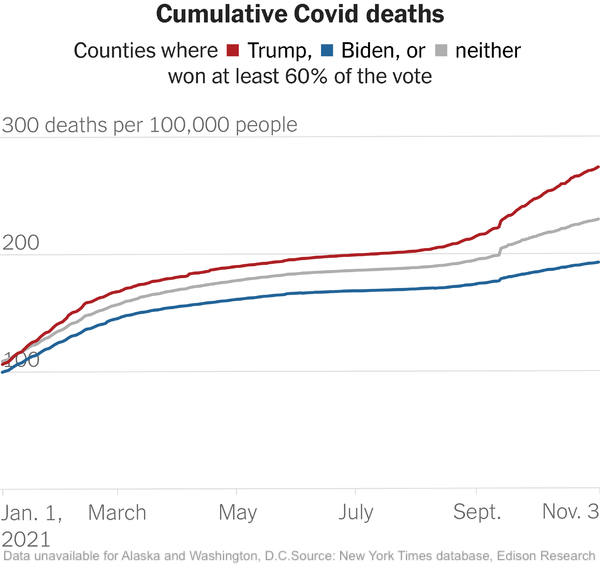Please get Covid vaccinated
Derek Hawkins writes in today’s Washington Post Coronavirus Updates:
New research out of Texas offers a grim illustration of the risks of not getting vaccinated. The state health department found that unvaccinated people accounted for more than 85 percent of the Lone Star State’s 29,000 covid-linked fatalities between mid-January and October. Seven percent of the deaths were among partially vaccinated people, while about 8 percent were fully vaccinated. Put another way: the unvaccinated in Texas were 40 times more likely to die of the disease than those fully vaccinated.
And as David Leonhardt writes in his Nov. 8th NYT The Morning, the gap in the cumulative death rate from Covid-19 between heavily T**** supporting US counties and heavily Biden supporting counties: “In October, 25 out of every 100,000 residents of heavily Trump counties died from Covid, more than three times higher than the rate in heavily Biden counties (7.8 per 100,000). October was the fifth consecutive month that the percentage gap between the death rates in Trump counties and Biden counties widened.”

If you haven’t already, please get vaccinated — it may save your life.